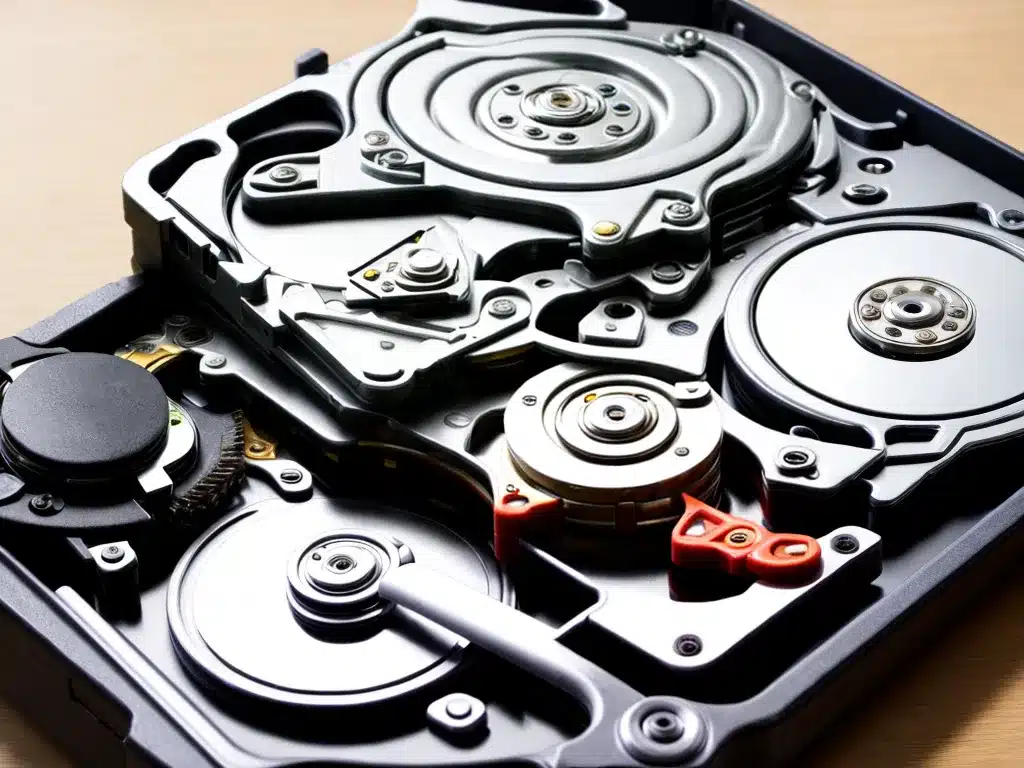
Why Clutter Slows Down Your Computer
As we use our computers over time, they tend to collect a massive amount of files, programs, and other data that aren’t necessarily still useful or needed. This clutter accumulates on the hard drive and can start to negatively impact your computer’s performance. Here are some key reasons why hard drive clutter slows down your PC:
-
Takes up storage space: The more clutter on your hard drive, the less storage space available. This forces your computer to work harder to save and access files.
-
Increases fragmentation: With a cluttered hard drive, files become fragmented over time. This means pieces of files get scattered around the hard drive. It takes longer for your computer to access fragmented files.
-
Bogs down boot time: If your hard drive is cluttered, it takes longer for your computer to boot up as it tries to load unnecessary programs and process unnecessary files.
-
Slows down access to programs and files: When you try to open programs or access files on a cluttered hard drive, your computer has to sort through a mountain of disorganized data to find what you need, slowing things down.
Key Types of Clutter to Remove
To speed up your computer by decluttering the hard drive, focus on removing these common clutter culprits:
Temporary Files
- Browser caches and cookies
- Temporary system files
- Temporary application files
- Downloaded program installers
Unused Programs
- Programs you don’t use anymore
- Trial software
- Bundled software
- Duplicate programs
Media Files
- Music you don’t listen to
- Videos you don’t watch
- Duplicate media files
- Old photos and images
System Logs
- Web server logs
- Application logs
- System error logs
Steps to Declutter Your Hard Drive
Follow these steps to thoroughly clean up clutter and boost your PC’s performance:
1. Delete Temporary Files
Temporary files like browser caches tend to build up quickly and take up significant hard drive space. Use the Disk Cleanup utility in Windows to delete these files.
2. Uninstall Unused Programs
Go through your installed programs list and uninstall any programs, trials, or software bundles you’re not using. This frees up space and eliminates clutter.
3. Organize Media Files
Go through your media folders and delete any duplicate, unused, or unneeded media files. Organize the remaining files into neatly sorted folders.
4. Remove System Logs
Old system logs from servers, applications, and OS errors can be safely deleted to recover space.
5. Use Storage Optimization Software
Use third party software like CCleaner or Wise Disk Cleaner to clean up junk files and optimize your disk.
6. Run the Defragmentation Tool
Defragment your hard drive to clean up fragmented files so they run more efficiently.
Keeping Your Hard Drive Clutter-Free
Once you’ve decluttered your hard drive, adopt these habits to keep it optimized:
-
Delete temporary files regularly: Set up weekly scheduled disk cleanups.
-
Uninstall unused programs often: Don’t let unused programs linger.
-
Organize media files: Use one central folder and eliminate duplicates.
-
Delete system logs weekly: Don’t let logs pile up indefinitely.
-
Optimize storage monthly: Run third party optimization tools monthly.
By actively monitoring your hard drive and optimizing clutter on a regular basis, you’ll keep your PC running lean and fast. Taking a little time for cleaning and decluttering pays off in better system performance.












